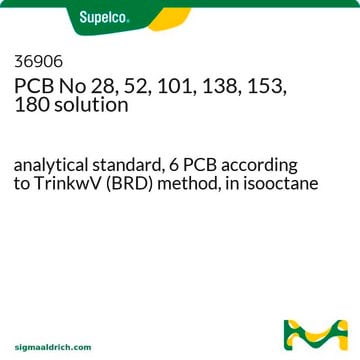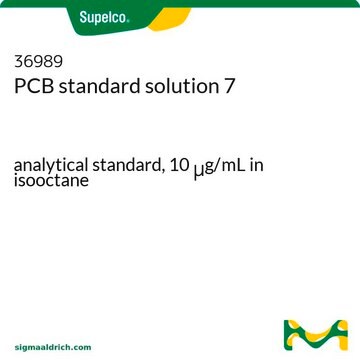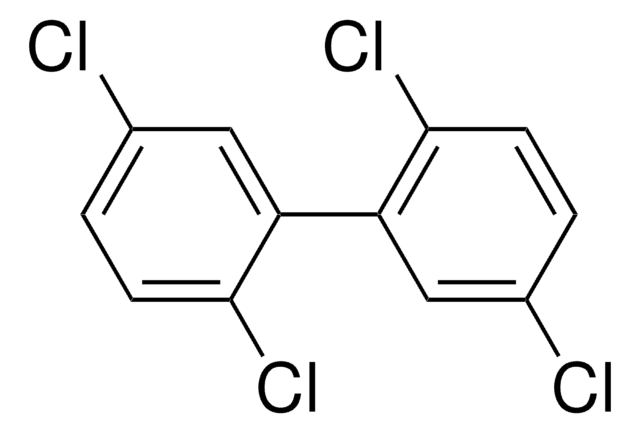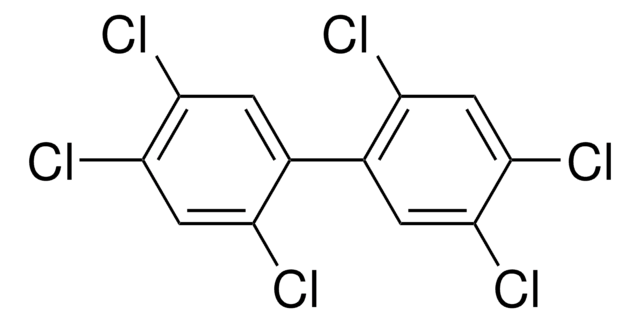36903
PCB No 138 solution
10 μg/mL in isooctane, analytical standard
Synonyme(s) :
2,2′,3,4,4′,5′-Hexachlorobiphenyl solution, 2,2′,3,4,4′,5′-PCB
About This Item
Produits recommandés
Qualité
analytical standard
Niveau de qualité
Durée de conservation
limited shelf life, expiry date on the label
Concentration
10 μg/mL in isooctane
Technique(s)
HPLC: suitable
gas chromatography (GC): suitable
Application(s)
environmental
Format
single component solution
Température de stockage
2-8°C
Chaîne SMILES
Clc1ccc(c(Cl)c1Cl)-c2cc(Cl)c(Cl)cc2Cl
InChI
1S/C12H4Cl6/c13-7-2-1-5(11(17)12(7)18)6-3-9(15)10(16)4-8(6)14/h1-4H
Clé InChI
RPUMZMSNLZHIGZ-UHFFFAOYSA-N
Application
Mention d'avertissement
Danger
Mentions de danger
Conseils de prudence
Classification des risques
Aquatic Acute 1 - Aquatic Chronic 1 - Asp. Tox. 1 - Flam. Liq. 2 - Skin Irrit. 2 - STOT SE 3
Organes cibles
Central nervous system
Code de la classe de stockage
3 - Flammable liquids
Classe de danger pour l'eau (WGK)
WGK 2
Point d'éclair (°F)
10.4 °F - closed cup
Point d'éclair (°C)
-12 °C - closed cup
Équipement de protection individuelle
Eyeshields, Faceshields, Gloves, type ABEK (EN14387) respirator filter
Faites votre choix parmi les versions les plus récentes :
Déjà en possession de ce produit ?
Retrouvez la documentation relative aux produits que vous avez récemment achetés dans la Bibliothèque de documents.
Notre équipe de scientifiques dispose d'une expérience dans tous les secteurs de la recherche, notamment en sciences de la vie, science des matériaux, synthèse chimique, chromatographie, analyse et dans de nombreux autres domaines..
Contacter notre Service technique











